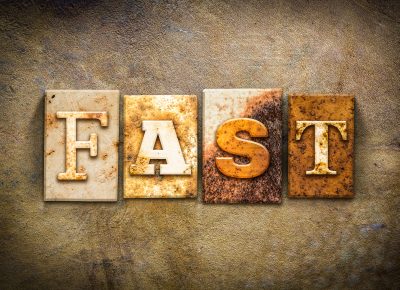It is important to avoid constipation when fasting. If you are fasting for a religious holiday or as part of a personal diet choice, you are more prone to constipation.
According to the National Institute of Diabetes and Digestive and Kidney Diseases, constipation occurs when a person has fewer than three bowel movements a week. Stool may also be hard and difficult to pass—and even after a bowel movement, you may not feel completely empty.
For those who fast during religious holidays such as Ramadan or for dietary reasons, you are more prone to constipation. Ramadan specifically is a time when many people experience constipation. According to a 2017 study in the Journal of Religion and Health, constipation frequency and severity increased significantly among people who fasted.
Here are tips for everyone to help reduce the frequency and severity of constipation but they are especially helpful if you are still observing the holy month through fasting.
(1) Eat More Fiber to Avoid Constipation
Because your meals are limited when fasting, it is important to make sure they are fiber rich. Eating fewer than 15 grams of fiber each day is associated with an increased risk of constipation.
To help reduce your chances of constipation, eat a fiber-heavy morning meal. Oatmeal, which is filled with fiber, can be a quick and easy option and will bulk up your stool. Another is a smoothie with hydrating fruit, nut or seed butter, yogurt, chia seeds and ground flaxseed for an extra boost of fiber.
Getting your fiber from natural sources and whole foods is also key. Fiber is a carbohydrate our bodies cannot digest, which is why it plays a big role in digestion—it specifically adds bulk to stool, which allows for softer bowel movements. When you opt for a fiber supplement, you don’t get the added benefit of the extra bulk to help move and soften stool.
(2) Drink More Water to Avoid Constipation
Water and fiber go hand-in-hand. Increasing fiber without adding adequate fluids can lead to more constipation. Drinking less than about 25 ounces of fluids each day can lead to constipation.
While water needs vary from person to person, it is recommended that you drink 95 to 125 ounces of total liquid daily. Eighty percent of that should come from water and other fluids.
It may be hard to fully meet this requirement while fasting. To help meet this requirement, try regularly sipping on water through the night rather than trying to chug water during the day.
To keep track of your fluid intake, assess hydration levels by looking at your urine. Normal urine color is light to pale yellow; anything darker suggests you may need more fluids in your diet.
(3) Get Moving to Avoid Constipation
It can be difficult to find the motivation to exercise when you are fasting but just walking can help improve constipation. Try to incorporate a 15-minute walk twice a day to keep things moving.
(4) Deep Breathing Exercises to Avoid Constipation
There are many potential benefits to slow and deep breathing exercises – helping improve constipation is one of them. Concentrating on taking regular, slow and deep breaths daily especially while trying to pass stools will help promote bowel movements. There are many slow-breathing APPS available on your mobile phone devices. Try using one of these.
(5) Adjust Your Position to Avoid Constipation
Passing stools in the squatting or semi squatting position is the most natural for our bodies and prevents excessive straining. There are specific devices—one specifically known as a Squatty Potty—designed to accommodate squatting during bowel movements. You can also simply use a foot stool or books under your feet to create the squatting position while having a bowel movement.
Expert Digestive Health Care in Toms River, NJ
If you need additional help with constipation care or other digestive health issues, the providers at Ocean Family Gastroenterology can provide further guidance and expert care. For a consultation contact 732-281-1590 or online HERE.
